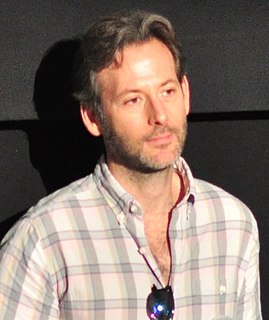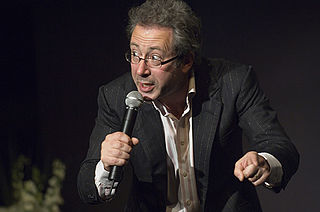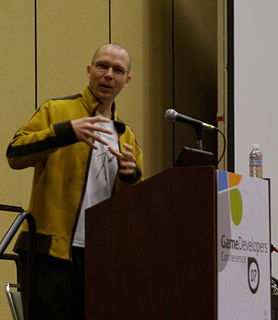A Quote by Jeff Baena
One of the interesting things about the 'Decameron' itself was it was written in the Florentine dialect as opposed to the Latin vernacular - and that was mainly to have it be a piece of literature for the people as supposed to some kind of highfalutin' canon.
Related Quotes
Dialogue that is written in dialect is very tiring to read. If you can do it brilliantly, fine. If other writers read your work and rave about your use of dialect, go for it. But be positive that you do it well, because otherwise it is a lot of work to read short stories or novels that are written in dialect. It makes our necks feel funny.
We want to do things that are interesting, great storytelling, some of it is gonna be more fun and funny, some of it is more serious and talking about interesting issues that we think are provocative and interesting to us. Kind of on a more political level. But, you know, just things that we find interesting that we think stories that need to be told.
Translated literature can be fascinating. There's something so intriguing about reading the text second hand - a piece of prose that has already been through an extra filter, another consciousness, in the guise of the translator. Some of my favorite writers who have written in English were doing so without English being their first language, so there's a sense of distance or of distortion there, too. Conrad. Nabokov. These writers were employing English in interesting ways.
No one spoke in terms of children's literature, as opposed to adult literature, until around the 1940s. It wasn't categorised much before then. Even Grimm's tales were written for adults. But it is true that ever since 'Harry Potter' there has been a renaissance in fantasy literature. J. K. Rowling opened the door again.
People are worse educated than they used to be. Certainly they are not very interested in reading books, as opposed to watching television, movies. They are used to getting things through the eye and the ear. In a small way, literature goes on being written, but few people like it. Once it's bureaucratized by the schoolteachers, the game's up.
What's interesting to me is that in terms of people who I feel are getting what my game is about - and here I'm not even talking about what the elements of the story mean, like, whatever symbolism and metaphors and things are in there. But even the structure of the game, like, there's a fundamental structure and reasons in the way things are laid out, and parts of the game that are meant to draw people's attention to certain things, regardless of what's contained in that structure. And what's interesting to me is that some people get that, and some people don't.
One of the things I really like about doing work online, and the thing I like about the work I'm doing now, is that I get to meet feminists all the time and I get to read new feminists every day on the blogosphere. And it's really that kind of diversity of thought that informs me more than anything else these days. It's just kind of learning something new all the time. And I kind of love that there's not really a feminist canon; or maybe there is, but it's being changed, that it's a constantly moving canon in the feminist blogosphere. I love that.






































